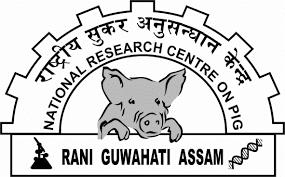Foreword
In an era where global interconnectedness has become the norm, the way we approach agriculture and animal husbandry has never been more crucial. The quest for sustainable, ethical, and environmentally friendly practices is driving innovations and transformations across industries. Among these, pig husbandry stands as a vital domain, where traditional practices are being redefined by the principles of natural and organic farming.
It is with great enthusiasm and anticipation that I introduce this seminal work on “Export-oriented natural and organic pig husbandry practices and value addition of pork.” This book is a beacon for farmers, researchers, and policymakers who are dedicated to enhancing the quality, sustainability, and ethical standards of pig farming on a global scale.
As we navigate the complexities of modern agriculture, it becomes increasingly evident that the future of food production must harmonize with the principles of sustainability. Natural and organic practices offer a pathway to this future, aligning agricultural activities with ecological balance and animal welfare. This book serves as a guide to understanding and implementing these practices within the context of international markets, highlighting the intersection of tradition and innovation.
The authors have meticulously compiled insights and strategies that reflect time-honored techniques. Their work is a testament to the potential of integrating organic practices with export-oriented goals, thus meeting the rising global demand for ethically produced and environmentally conscious pork products. Through detailed analyses, practical advice, and real-world examples, this book provides invaluable resources for those seeking to make informed decisions and drive meaningful change in the industry.
As we look towards the future, this volume will undoubtedly serve as an essential reference for advancing natural and organic pig husbandry. It challenges us to rethink our approaches, encourages us to embrace sustainable practices, and inspires us to contribute positively to the global food system. I commend the authors for their dedication and vision and eagerly anticipate the impact this work will have on shaping the future of pig husbandry.
In closing, I invite readers to immerse themselves in the wealth of knowledge contained within these pages. May this book not only inform and guide but also inspire a renewed commitment to excellence and sustainability in the field of pig farming.
Vivek Kumar Gupta
Director, ICAR-NRC on Pig
